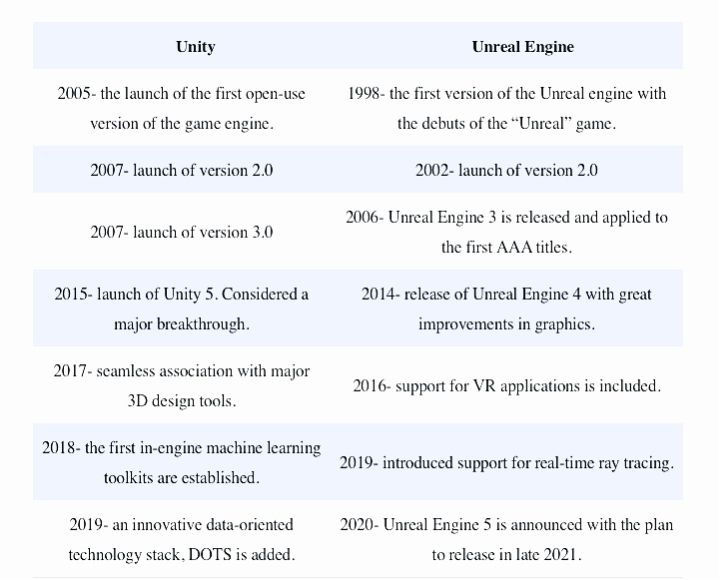As the GDC community enjoyed its 38th conference in San Francisco last week, a number of big talking points emerged. The game engine dilemma was one of them.
The field has been dominated by two popular players for over 20 years. 2024, however, brings growing gamer needs, potential new fee structures and an emerging shift; with developers considering migration to custom engines that boast their own benefits.
Since Tim Sweeney’s release of Unreal Engine (UE) in 1998, and the conception of Unity in 2004, the two have remained head-to-head amongst developers.
Whilst UE was first designed as a first-person shooter (FPS) game, the last two decades have seen the exponential growth of an advanced toolset and impressive graphic capabilities; helping it soar as the world’s number one engine of choice. With over 2 million games already built via the engine, the Epic Games-owned platform is, unsurprisingly, the favourite for AAA games that are visually stunning and hyper-realistic.
Unity, meanwhile, is applauded for its user friendliness, and for an interface which encourages learning and deeper experimentation. Its asset store, used by developers to access tools and plugins that serve to enhance their creations, is impressive and currently stands at over 65,000 elements.
For now though, UE5 is arguably unbeatable from a player’s standpoint – its ability to create large-scale games that delight with real-time, 3D, experiences further enhanced by the introduction of the Nanite and Lumen systems. Now, the well-received 5.4 preview at GDC comes with the promise that “you name it – we made it faster.” The focus? Animation, with the release of over 500 AAA animations created from high-end motion capture data, free to use for all UE developers.
Check out the timeline below for a glimpse of both platforms’ most exciting development milestones:

(Source: Extern Labs)
Despite the gaming world’s love for the two titans, a survey by GDC and Omdia shows that 33% of developers have in fact switched game engines in the past year, or have at least thought about doing so.
Unity’s introduction of a controversial “Runtime Fee” policy was a considerable factor in this shift; the fee was subsequently axed for games built with a Unity Personal licence, but generated serious backlash nonetheless and led developers to seek alternative options.
Plus, there are other reasons for creators to explore a little further. Greater control, enhanced ability to innovate, plus deeper personalisation capabilities are three such motivations to try out alternatives. With engines such as Godot enabling developers to build games from scratch and create the specific features required to do so – all for free, to an extent – it’s hardly surprising to see Reddit feeds aglow with positive feedback on many of the options available.
That said, limitations in adaptability can be a real challenge with engines that fall outside of the leading brand names – as can their propensity to become quickly outdated, alongside a lack of support. On popular engines, developers can relax safe in the knowledge that a multitude of drag-and-drop features will be at their fingertips, whatever the genre of the game in hand; and that invaluable tutorials and support come as a standard part of the ‘popular’ package.
In a way, yes; and it’s exciting. As gaming audiences broaden, so do the demands of developers. This means:
Actually, it’s relatively straightforward. When writing a game, developers will make decisions based on genre and style, technical and artistic requirements, budget, timeline and their own skills and competency level. So engine developers should decide on a niche to prioritise, and serve it – really, really well. As the team at Andreessen Horowitz puts it:
“Rather than competing with the incumbent engines head on trying to serve every use case, a Next Gen Engine will likely arise through a few routes where a traditional game engine is unbundled:
Vertical Focus: Best-in-class at serving a specific game genre or art style
New Platforms: Optimizing for a specific platform
AI World Generator: Building a consumer facing AI world building platform”
As we eagerly anticipate what the rest of the year brings in game engine development, we’re willing to bet that the ‘big 2’ of game engines needn’t worry just yet. Whilst studios have a need for premium, AAA games at the top levels of performance and scalability, the leaders at Epic Games and Unity Technologies can sleep soundly.